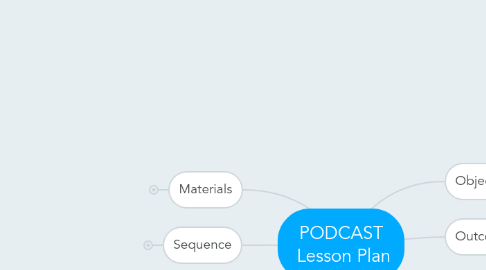
1. Materials
1.1. Recording device (Smart phone, ZOOM Recorder, Voice Memo Recorder), Audio Editing Software (Garageband, Audacity), Soundcloud account, Members of WJO or WSO (either they come to our school for an outreach concert, or we take a field trip to Winnipeg and arrange to visit with them after their concert)
2. Sequence
2.1. Activation
2.1.1. Watch composer/musician interviews, answer questions (interview subjects dependent on student interest...ex) Kendrick Lamar, Joni Mitchell, Leonard Bernstein, Maria Schneider, etc.
2.2. Acquire
2.2.1. Over a series of 4-6 rehearsals, while working on our concert repertoire, students will be given specific rehearsal strategies to focus on for sight reading, tuning, listening across the ensemble, listening to new works, as well as strategies for private practice (metronome work, diagnosing and fixing technical problems, drill and kill, slow practice, partner practice, sectional work)
2.3. Apply
2.3.1. Students will test a variety of rehearsal and practice strategies and reflect on their effectiveness/how they changed their perspective and performance in Reflective Journals, which will later contribute to their Group Podcast Series.
3. Assessent
3.1. Formative
3.1.1. Exit slips, asking students about their favourite and least favourite types of music to perform and to just listen to, their influences for making music, what they like and dislike about their instrument and the role that comes with it, their thinking processes in context of full rehearsals and private practice.
3.2. Summative
3.2.1. GROUP Podcast Series: Using findings from their Reflective Journals, students will develop questions for members of the Winnipeg Jazz Orchestra and/or Winnipeg Symphony Orchestra. The questions should be prefaced with students own personal experiences, feelings, and attitudes towards processes, practices, and preferences, enabling the students to converse and relate to the professional musicians. Groups of 3-4 will be selected by the students and approved by the teacher. Group members will work together [with one teacher conference before the interviews] to focus and balance their variety of questions so their podcast has a variety of engaging insight. The podcast will include a title, transition music, introductions to the interviews, and a conclusive group panel discussion on what the students have learned through their process of experimentation and interviewing.
4. Objectives
4.1. As a result of this lesson, students will relate their music practices, preferences, and processes to that of professional musicians. Students will gain awareness of common music etiquettes and habits that contribute to successful music making.
5. Outcomes
5.1. Curricular: M–V4 students assess their learning in performing, creating, and experiencing music. M–U3 students demonstrate understanding of the roles, purposes, and meanings of music in the lives of individuals and in communities.
5.2. ICT
5.2.1. Cognitive: P-2.1 constructs "how and why" questions, predictions, hypothesis, and identifies information needs P-3.1evaluates original inquiry questions and creates new questions for future inquiry G-1.4 collects primary data using electronic devices
5.2.2. Affective: Co-1.1 works with other in teacher-directed learning tasks using ICT and assists others with ICT knowledge and procedures
6. Course: Band, Gr.7-12
6.1. Unit: Musical Processes
6.1.1. Essential Questions: How can I be a successful musician? What habits and processes do professionals in the music business attribute to their success? How different are professional musicians from everyday music appreciators?
